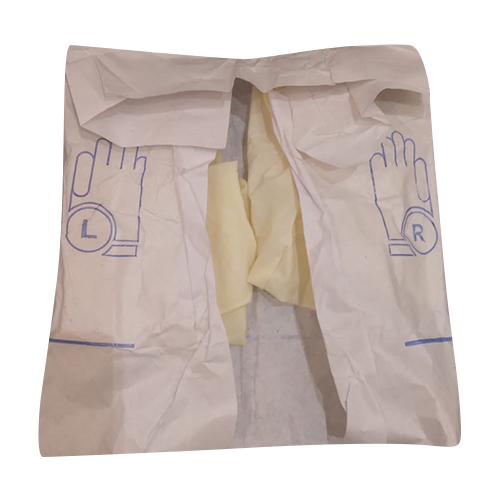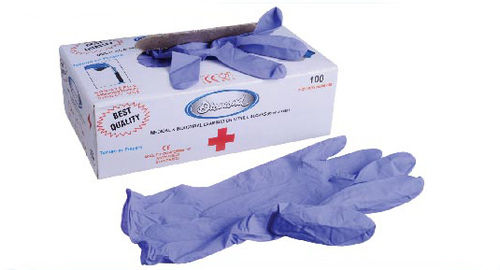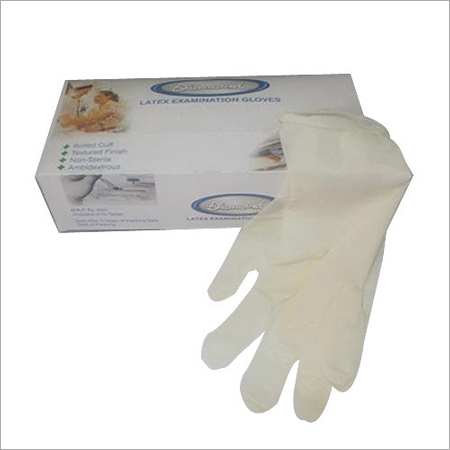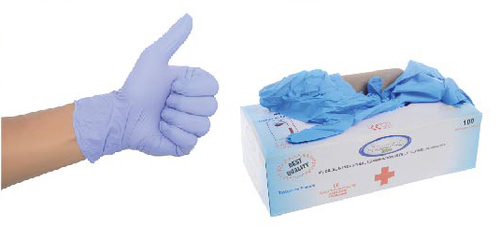
Surgical Sterile Hand Gloves
15 INR/Pair
Product Details:
- Usage Industrial
- Product Type Gloves
- Glove Type Household Gloves
- Style Full Finger
- Pattern Plain
- Click to View more
X
Surgical Sterile Hand Gloves Price And Quantity
- 15 INR/Pair
- 500 Pair
Surgical Sterile Hand Gloves Product Specifications
- Full Finger
- Household Gloves
- Gloves
- Industrial
- Plain
Surgical Sterile Hand Gloves Trade Information
- 100 Pair Per Day
- 2 Days
Product Description
Surgical sterile hand gloves, commonly known as surgical gloves or medical gloves, are disposable gloves designed to maintain a sterile environment during surgical procedures and other medical activities. They play a crucial role in preventing the transmission of infections between healthcare professionals and patients.
Key features of surgical sterile hand gloves:
- Sterility: Surgical gloves are sterilized to ensure they are free from any microorganisms, such as bacteria and viruses, that could potentially contaminate the surgical site or the patient.
- Material: These gloves are typically made of latex, nitrile, or neoprene. In recent years, there has been a shift away from latex due to the risk of allergic reactions in some individuals. Nitrile gloves are now widely used as an alternative.
- Powder-free: To prevent potential complications and allergies, most surgical gloves are powder-free. Powdered gloves were once common, but the powder could cause irritations or complications when it came into contact with tissues or open wounds.
- Sizing: Surgical gloves come in various sizes to ensure a proper fit for different hand sizes, which is essential for comfort and ease of movement during surgery.
- AQL (Acceptable Quality Level): Surgical gloves are subjected to quality control measures and must meet a specific AQL, indicating the maximum number of defective gloves that are acceptable in a batch.
- Single-use: Surgical gloves are designed for single-use only. After a procedure, they must be safely discarded to avoid any cross-contamination.
- Compliance: Quality standards for surgical gloves are set by various regulatory bodies, such as the Food and Drug Administration (FDA) in the United States and the European Medicines Agency (EMA) in Europe.
FAQ:
Q. Why are surgical gloves important in healthcare settings?
Ans: Surgical gloves are essential in healthcare settings to maintain a sterile environment during surgical procedures and to protect both healthcare professionals and patients from potential infections or cross-contamination.
Q. What materials are surgical gloves made of?
Ans: Surgical gloves are typically made of latex, nitrile, or neoprene. Nitrile gloves have become more popular as an alternative to latex due to the risk of latex allergies.
Q. What is the difference between powdered and powder-free surgical gloves?
Ans: Powdered surgical gloves used to be common but have been largely replaced by powder-free gloves. Powdered gloves have a powder coating on the inside to make them easier to put on, but this powder can cause irritation or complications when it contacts tissues or open wounds. Powder-free gloves are now the standard to minimize these risks.
re all surgical gloves sterile?
Ans: Yes, surgical gloves are sterilized during the manufacturing process to ensure they are free from any microorganisms that could contaminate the surgical site or patient.
Q. Can surgical gloves be reused?
Ans: No, surgical gloves are designed for single-use only. They must be discarded after each procedure to prevent cross-contamination.
Q. How do I choose the right size of surgical gloves?
Ans: Surgical gloves come in various sizes to fit different hand sizes. To choose the right size, measure the circumference of your hand around the palm, excluding the thumb. Refer to the glove manufacturer's sizing chart to find the appropriate size.
Q. Can I use latex gloves if I have a latex allergy?
Ans: If you have a latex allergy, you should avoid using latex gloves as they can trigger allergic reactions. Instead, opt for nitrile or neoprene gloves, which are latex-free alternatives.
Q. Are surgical gloves recyclable?
Ans: No, surgical gloves are not recyclable due to the risk of contamination. They should be disposed of in the appropriate waste receptacles following medical waste disposal guidelines.
Q. How should surgical gloves be stored to maintain their sterility?
Ans: Surgical gloves should be stored in a cool, dry place, away from direct sunlight and heat. They should be kept in their original packaging until ready for use to maintain their sterility.
Q. What are the quality standards for surgical gloves?
Ans: Surgical gloves must meet specific quality standards set by regulatory bodies such as the Food and Drug Administration (FDA) in the United States and the European Medicines Agency (EMA) in Europe. These standards ensure that the gloves meet the necessary safety and performance requirements.
Tell us about your requirement

Price:
Quantity
Select Unit
- 50
- 100
- 200
- 250
- 500
- 1000+
Additional detail
Mobile number
Email
Other Products in 'Examination Hand Gloves' category
We export to Dubai, Russia, African countries, South Africa, Egypt.














 English
English Spanish
Spanish French
French German
German Italian
Italian Chinese (Simplified)
Chinese (Simplified) Japanese
Japanese Korean
Korean Arabic
Arabic Portuguese
Portuguese